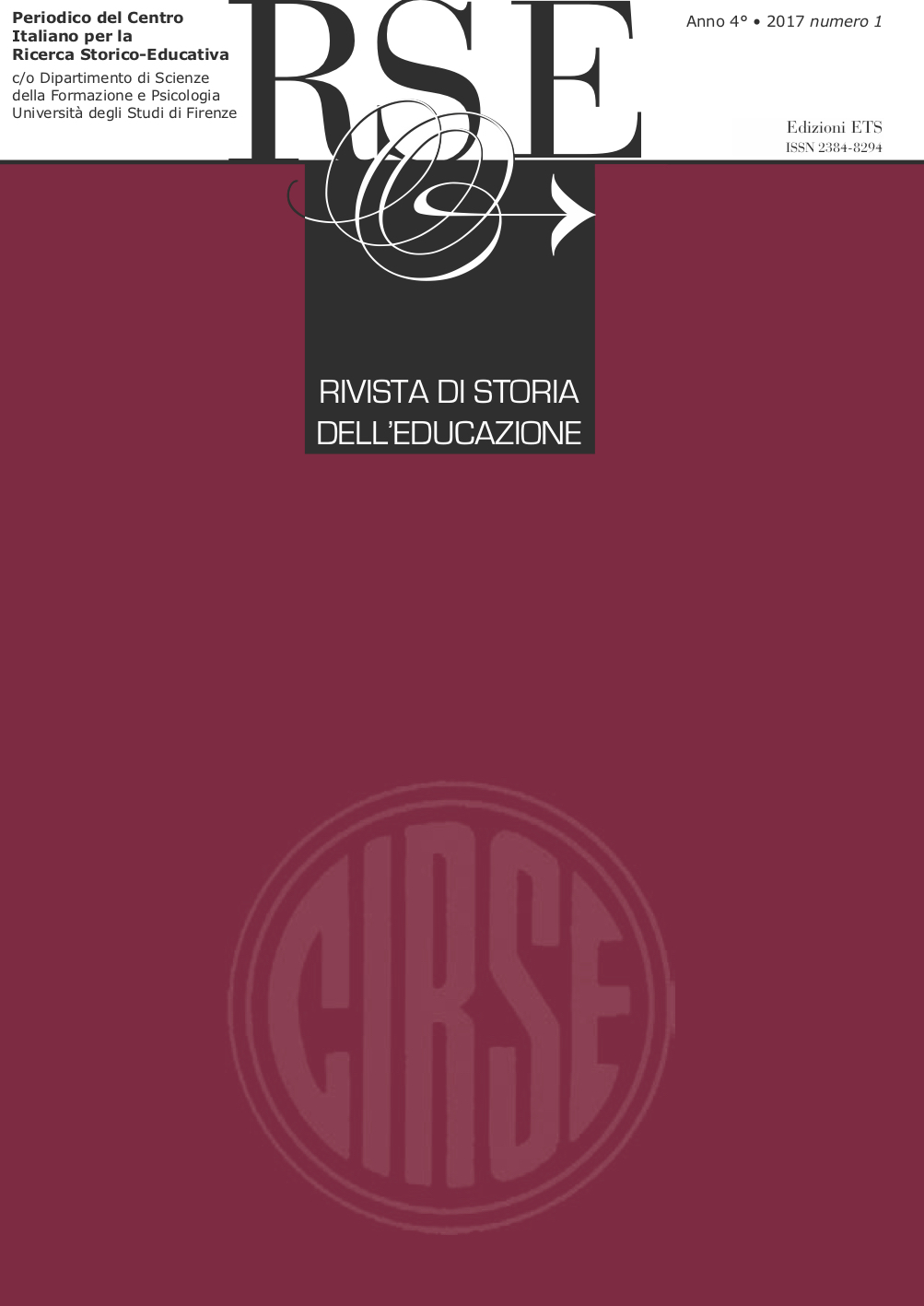The German school in South Tirol before the italianization and ideologization process (1918-1922/23): a research on scholastic rules and regulations at the macro level and their application on site following the example of the school of Klausen/Chiusa
Published 2018-06-10
Keywords
- South Tirol, school, Italian annexation, forced italianization, educational policies
How to Cite
Abstract
«In Alto Adige politics are nowadays made by three quarters in schools», said Credaro, the highest representative of the Italian state after South Tyrol’s annexation during the years from 1919 to 1922 (Di Michele 2008, 93). With the border’s relocation to the Brenner Pass after the First World War, beside the Italian-speaking Trentino, also the area north of the village of Salurn/Salorno with its 224,000 German-speaking, its 9,400 Ladin-speaking and its 7,300 Italian-speaking inhabitants became part of the Italian state (census 1910; Atz 2013, 159). After the Fascist takeover these areas were subjected to a massive Italianization of the German-speaking population, especially through the school system and until today, this period has been remembered as a collective trauma. The present research analyses South Tyrol’s first four years under Italian rule. Using the theoretical approach of «school as an institutional actor» (Fend 2006), this study examines the implementation of “politics”, as intended in the opening quotation, the further process of the regulations’ recontextualisation in pedagogical concepts through the actors at the meso-level, up to the interpretation of their programs by the actors at the micro-level (teachers and pupils) based on the example of the town school of Klausen/Chiusa.

